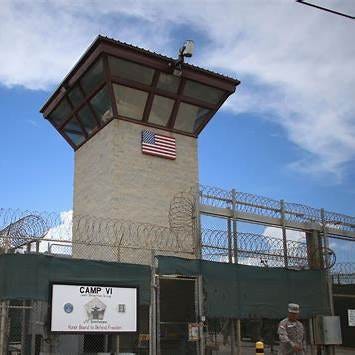The Dangerous Precedent of Mass Deportations and Offshore Detention
The United States stands at a crossroads, facing a policy decision with profound human, economic, and legal consequences. The expansion of Guantánamo Bay to detain migrants, coupled with the vow to deport millions of undocumented individuals, signals a shift toward mass-scale detention and removal that echoes some of the darkest chapters of American and global history. This is not merely a policy debate; it is a moral and humanitarian crisis in the making.
The Scale and Logistics of Mass Deportation
History teaches us that dealing with a population of over 11 million people requires wisdom, legality, and an understanding of the human condition. A rushed approach will create immense suffering, deepen social divisions, and weaken America’s standing in the world. If this is truly an urgent national issue, then it must be handled with both precision and responsibility. A reckless policy will not solve the problem, but will, instead, generate profound instability for years to come.
The president’s pledge to deport millions of undocumented individuals, raising immediate logistical and humanitarian concerns. Previous large-scale immigration enforcement efforts, such as “Operation Wetback” in the 1950s, resulted in mass arrests, family separations, and widespread human rights violations. A modern-day version of such efforts would require a vast expansion of detention facilities, mass mobilization of law enforcement, and likely the use of military resources—something without precedent in contemporary American history.
Additionally, immigration courts are already facing severe backlogs. Attempting to accelerate deportations through emergency executive measures would place immense strain on the legal system and erode due process protections. Expedited removals risk wrongful deportations, including of lawful residents and even U.S. citizens. The historical record warns us that when governments pursue mass removals without restraint, innocent people inevitably suffer.
Legal and Human Rights Precedents
Reports suggest that the current administration may invoke the Alien Enemies Act, a rarely used 1798 law, to expedite removals. This law was last applied during World War II to intern Japanese Americans—an act now recognized as one of the nation’s great moral failings. If repurposed, it could allow for sweeping detentions and deportations under a wartime framework, despite the absence of a formal war declaration.
Reviving a 200-year-old law for such a purpose reflects a dangerous retreat from democratic governance. Surely, if immigration is a challenge in need of solutions, the path forward must involve modern, carefully considered policies, rather than reliance on antiquated statutes designed for a different era. Force-fitting historical laws into today’s context is not only legally dubious, but risks creating deep and lasting harm.
At the same time, the administration is reportedly expanding the 287(g) program, which deputizes local law enforcement to perform federal immigration duties. This program has been widely criticized for fostering racial profiling and eroding trust between communities and law enforcement. A sweeping deportation campaign under these conditions would almost certainly lead to unchecked abuses of power, undermining the very principles of justice the nation claims to uphold.
Economic and Social Consequences
Beyond the moral and legal ramifications, the economic impact of mass deportations would be severe. Undocumented immigrants are deeply woven into the nation’s workforce, particularly in agriculture, construction, and the service industry. Removing millions of workers from these sectors would create labor shortages, disrupt supply chains, and drive up costs for consumers.
The statistics are clear:
- Agriculture: Over 50% of U.S. farmworkers are undocumented, and states like California, Florida, and Texas depend heavily on their labor.
- Construction: An estimated 25% of construction workers in states like Nevada and Arizona are undocumented, making them essential to the industry.
- Hospitality & Service Sectors: Cities such as New York, Miami, and Las Vegas rely on immigrant labor to sustain their economies.
Immigrant communities contribute not only as workers but as consumers, homeowners, and business owners. Policies that instill fear and uncertainty within these populations have already led to declining consumer spending and weakened local economies. A mass deportation effort would not only affect those directly targeted, but would ripple throughout society, disrupting millions of lives and livelihoods.
The Dangerous Historical Echoes
The past offers stark warnings about what happens when nations embrace exclusionary and punitive policies. From the internment of Japanese Americans to the forced deportations of the Mexican Repatriation era, history reminds us that mass removal efforts are often fueled by fear rather than necessity—and that they leave behind a legacy of injustice.
The expansion of Guantánamo Bay as a detention site for migrants is a chilling sign of what may come. Offshore detention has long been used as a means to evade legal and human rights protections. If this trend continues, it could set a precedent for further erosion of rights and greater acceptance of mass detentions as a standard policy tool.
A Call to Conscience
The question before us is not simply whether mass deportations and offshore detention are possible—they are immensely costly, disruptive, and fraught with ethical peril. The real question is: Are we willing to abandon our fundamental values to pursue them?
America has long prided itself on being a nation of laws, of justice, and of moral leadership. Yet, at this moment, we face the risk of repeating historical mistakes, rather than learning from them. Are we to become a nation that dehumanizes those who live among us? Are we willing to allow political expediency to override our commitment to human dignity and constitutional rights?
A policy of this scale demands scrutiny, resistance, and an unwavering defense of justice. Lawmakers, civil society, and the public must challenge these proposals before they become irreversible realities. History has shown us where such paths lead. Do we have the wisdom to choose a different one?
The time to act is now.




